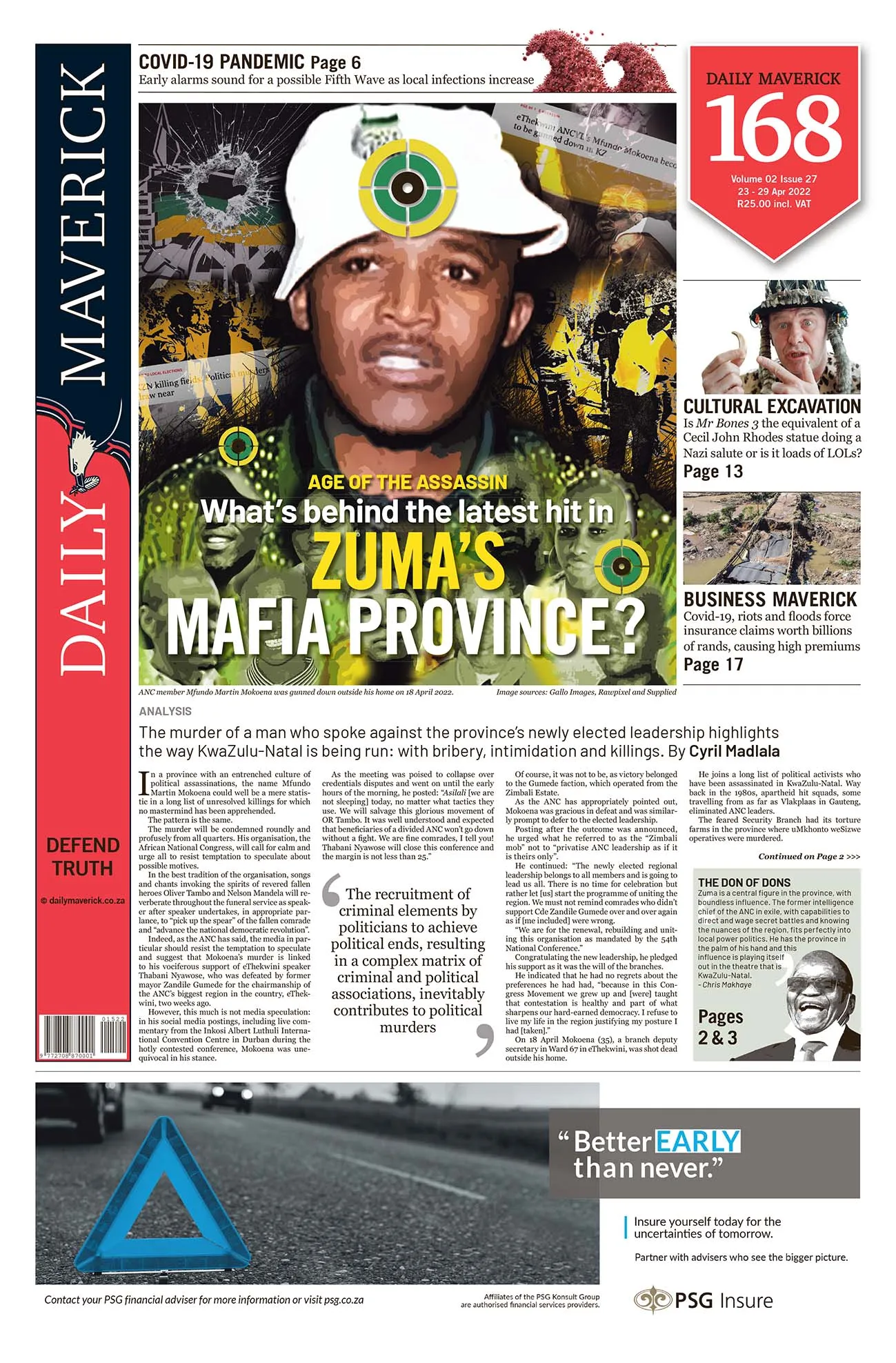People in KwaZulu-Natal are still haunted by memories of the riots last year and it’s clear the incapacity of the state is engraved in local memories. In academia, we often talk about how local government is the central pivot in our society-building exercise, but it is also the sphere of government most wracked by inefficiency and poor capacity. The chief cause of this dysfunction is the atrocious quality of the political leadership.
This is not merely a matter of competence. As we all know, looting of the public purse at local government level is endemic. Dinner-table conversations, among rich and poor alike, often turn to how people in KwaZulu-Natal were abandoned by the state during the riots. The police were completely absent or simply ill-equipped to deal with the situation as the crisis escalated. People were left on their own for days.
This resulted in new forms of solidarity and self-organisation – and in horrific murders.
This time, during the flooding and in its immediate aftermath, the state has also been slow in its response. Many poor communities have taken to the streets in protest. Many questions have been asked of Durban’s rambling mayor and what preventative steps were taken by the political leadership after the floods in 2019.
As I write, many communities still have no water. Some councillors are doing their best to keep communities updated, but the city simply does not communicate in any cohesive way.
State failure leads people to look elsewhere for support. In this crisis, as happened during the lockdowns and the riots, many people have turned to NGOs, religious institutions, community organisations, organisations of the poor and the existing social capital in their neighbourhoods.
In Chatsworth, community leaders were quick to put up the addresses of more than 10 mosques where borehole water was available at no cost. This became the norm across multiple communities in KwaZulu-Natal.
NGOs such as WeFeedSA, working collaboratively with other NGOs, have managed to provide three meals a day to more than 40,000 flood victims in recent days. This is an extraordinary achievement that far outstrips any sort of response from the state.
There are multiple other examples where NGOs are doing what one would ordinarily expect from the local state. In terms of self-organisation, some organisations of the poor have been able to respond quickly and effectively in times of crisis.
But, as remarkable as all this work is, we do have to ask why it is that religious and charitable organisations and the city’s uniquely powerful social movement are the first to respond in times of crises, and sometimes respond in far more sustained ways than the state.
The state’s resources are, after all, much, much greater than any other kind of private group.
If we had a functional state, it would have taken preventative measures to reduce the risks of flooding, maintained infrastructure properly and sprung into quick and effective action when flood waters overwhelmed even the best-laid plans. But we have a largely failed state, a state that is more of a kleptocracy than a social project.
The election of Zandile Gumede as ANC chairperson in the eThekwini region has shown that the bulk of the local ANC is utterly unrepentant about its failures.
It’s hardly surprising that more and more people are saying that they’d rather pay their tax to religious, charitable and community-based organisations than to the state. DM168
This story first appeared in our weekly Daily Maverick 168 newspaper which is available for R25 at Pick n Pay, Exclusive Books and airport bookstores. For your nearest stockist, please click here.

















No trust left. The Mayor and Premier of KZN hardly make sense.
A tax revolt is on the horizon if government does not catch a wake up call! I know this is an idle statement but I feel better for saying it! apologies to all the intelligent DM readers.
The last paragraph of this excellent article says it all! Apart from the DA-led municipalities more and more law abiding tax payers will withhold their taxes as they are simply receiving no services in return.
Cape Town has just announced that they collect 98% of rates etc that are due. I would love to know the figures for the rest of the country.